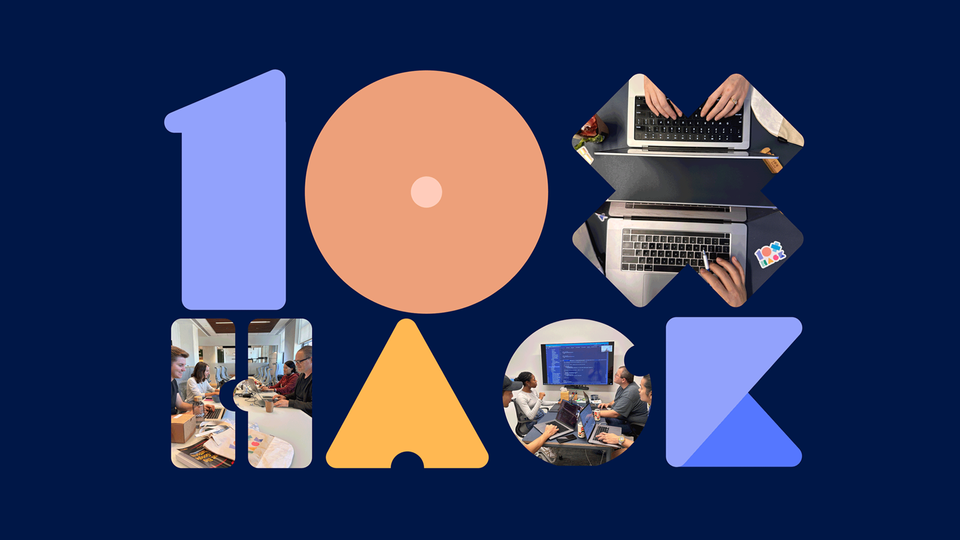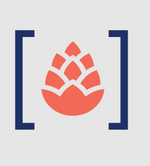Cedar’s Hackathon is a collaborative event that brings both remote and in-person employees together to build solutions to real-world challenges we face as an organization. Hackathon participants joined in from 19 different states, split pretty evenly between remote Cedarians and those located in the New York tri-state area where we’re headquartered. Hackathons give us a chance to work on parts of the mission - empowering us all to easily and affordably pursue the care we need - that aren’t necessarily top of mind in our day-to-day.
For nearly four years, hackathons were absent from our schedule, primarily due to the impact of the pandemic and a lack of prioritization. However, in 2023, there was a deliberate decision to prioritize them, aiming to cultivate an innovation mindset. The specific objective was to identify and support the most promising ideas generated during the hackathon, transforming them into tangible products.
In the weeks leading up to the Hackathon, Cedarians signed up for the projects they were most interested in working on, independently organizing themselves into teams. Once finalized, teams were tasked with the challenge of autonomously managing and coordinating their projects, taking responsibility for organizational aspects such as task allocation, prioritization and meeting deadlines.
Even though teams organized independently, the Hackathon Planning Committee worked quietly behind the scenes to make sure everything ran smoothly. They took care of pre-event logistics. These included: helping organize ideas and sign-ups, providing guidance on how projects should be formatted for judging and nudging teams to get together before the Hackathon kickoff for a bit of pre-event planning. They also made sure there were designated work areas in the office with AV setups for each team to work collaboratively - this played a crucial role in ensuring that remote participants experienced a sense of inclusion.
Planning a Healthcare Tech Hackathon with 150+ participants spread across the US is hard. Healthcare data needs to be protected and handled with care, so security needs to be paramount, and uniting a distributed team with a single carefully considered thematic focus must be approached with conviction and excitement. Within these confines, the planning committee established an objective to empower Hackathon participants to explore solutions for real-world problems at the teams' preferred pace, often quite rapid!
To achieve these objectives, a planning committee, made up of Cedarians from our Makers and People organizations, initiated bi-weekly meetings nine months prior to the event. The committee set milestones and deadlines for every area that needed input and implementation for the event. This included budget, technical resources, documentation, company communication timing, judging criteria, team formation details, food decisions and creating and acquiring team swag.
The Hackathon kicked off with a pre-recorded video that catered to in-person, remote and hybrid participants across multiple time zones. The teams were then allowed to start building with two days of uninterrupted time to complete their presentations. Picture this: engaging Zoom sessions, walls adorned with sticky notes outlining plans and notes, participants immersed in coding tasks and lively conversations. Each team managed to accomplish something remarkable within the limited time frame.
The committee gained valuable insights during the planning process and while gathering participant feedback, emphasizing the significance of continuous feedback at each stage and the development of robust technical processes and tools for participants.
“Apply a Growth Mindset” is one of Cedar’s core values, meaning we maintain an optimistic, constructive and resilient attitude, passionately pursuing our mission, embracing difficult problems and learning from setbacks.
This core value helped us coin 2023’s theme: “10xHack”. Teams were asked to think about how they could increase the following areas relating to their projects:
- Implementation
- Speed
- Product experience
These sub-themes were chosen due to their relation to challenges in our day to day operations and the value of solving them through Cedar’s lens given healthcare complexity and integrations. Once presented with the overarching theme and sub-themes, participants formulated and submitted project ideas. Submissions were then sorted for duplicates or consolidated due to redundancies. 33 submissions were received, resulting in 23 project ideas for participants to sign up for. At the time of the Hackathon, 20 projects were staffed and ready for Hacking.
Once the Hackathon kicked off, teams had 36 hours to bring their ideas to fruition. Following this period of intensive group work, the projects were concluded and it was time to proceed with the judging and voting process.
The final overall winning Hackathon team was selected through a two step process. First, a panel of judges from the leadership team evaluated the finished projects, narrowing the field down to the top 3 teams based on criteria outlined below. Once the top teams were announced, voting was opened up to the entire Makers Organization to choose their top team, plus an honorable mention from the remaining 17 teams, putting the choice of the overall winner in the hands of Cedarians.
Our hackathon judges (Michael Maag - Chief Product Officer, Kinshuk Mishra - Chief Technology Officer and Arel Lidow - Technical Co-founder & Distinguished Product Architect) evaluated teams on three categories:
- Creativity - On a scale of 1-10 is the finished project mind-blowing and novel? In the history of the world, you’re pretty sure it’s never been described before.
- Craftsmanship - On a scale of 1-10 is the finished project not only built, working and polished, but almost ready for code review, unit tests, and, ultimately, a public release?
- “Does it 10x the project prompt?” - On a scale of 1 - 10 are we 10x better off because this idea exists?
The judges’ team picks included:
Team Tau - This project centered around building patient account notices, which are smart diagnostics that help operators diagnose patient problems more quickly.
Team Psi - Focussing on improving the patient check in experience, this team worked to streamline the flow from Cedar Pre to external e-Check In processes.
Team Lambda - The goal of this project was to create an internal search engine utilizing the capabilities of Google LLM to more easily and efficiently search and find information from internal resources and documents.
After identifying the top three teams, we introduced the People's Choice Voting, effectively placing the ultimate decision of the Hackathon's overall winner in the hands of Cedarians. At our special Hackathon edition of Makers All Hands the following week, Team Tau was announced as the overall winner from the top three listed above. An additional “People’s Choice Honorable Mention” was selected from all of the other teams and awarded to Team Sierra, who’s project focused on “super simple speedy summarization synchronization” for updating and maintaining documentation. Prize options for the four top teams included airpods, Patagonia backpacks, gift cards and more.
The initial goals of this Hackathon were to encourage innovative thinking, promote collaborative efforts across teams and allocate time for Cedarians to have fun exploring emerging technologies.Using those goals as the success criteria along with the structure of the 10x theme, we asked participants for their feedback after the event concluded. The Hackathon was a resounding success. - Strong partnerships and new avenues for cross collaboration were built helping us learn and try new things - and projects are now on the roadmap, soon to have a direct impact on the patients we serve.
Congratulations to all of the participating teams in 10XHack! After the hackathon concluded, the leadership team ended up sponsoring 7 projects based on feasibility, potential impact and the level of investment. We also ensured each of these projects have an assigned DRI (Directly Responsible Individual) who is responsible for scoping, execution and progress updates. This has ensured that the hackathon driven innovation isn’t merely creative ideation but also results in meaningful execution with accountability. This event even inspired non-Maker Cedarians and this year we’re brainstorming ways to include everyone for a company wide Hackathon!
A special thanks to TJ Smith, Marguerite Kellogg, Aaron Zollman and Kinshuk Mishra for their contributions to this piece.
To learn more about the 2023 Hackathon, check out Cedar’s LinkedIn post here
Interested in a career with Cedar? Check out our open roles. #growwithcedar


